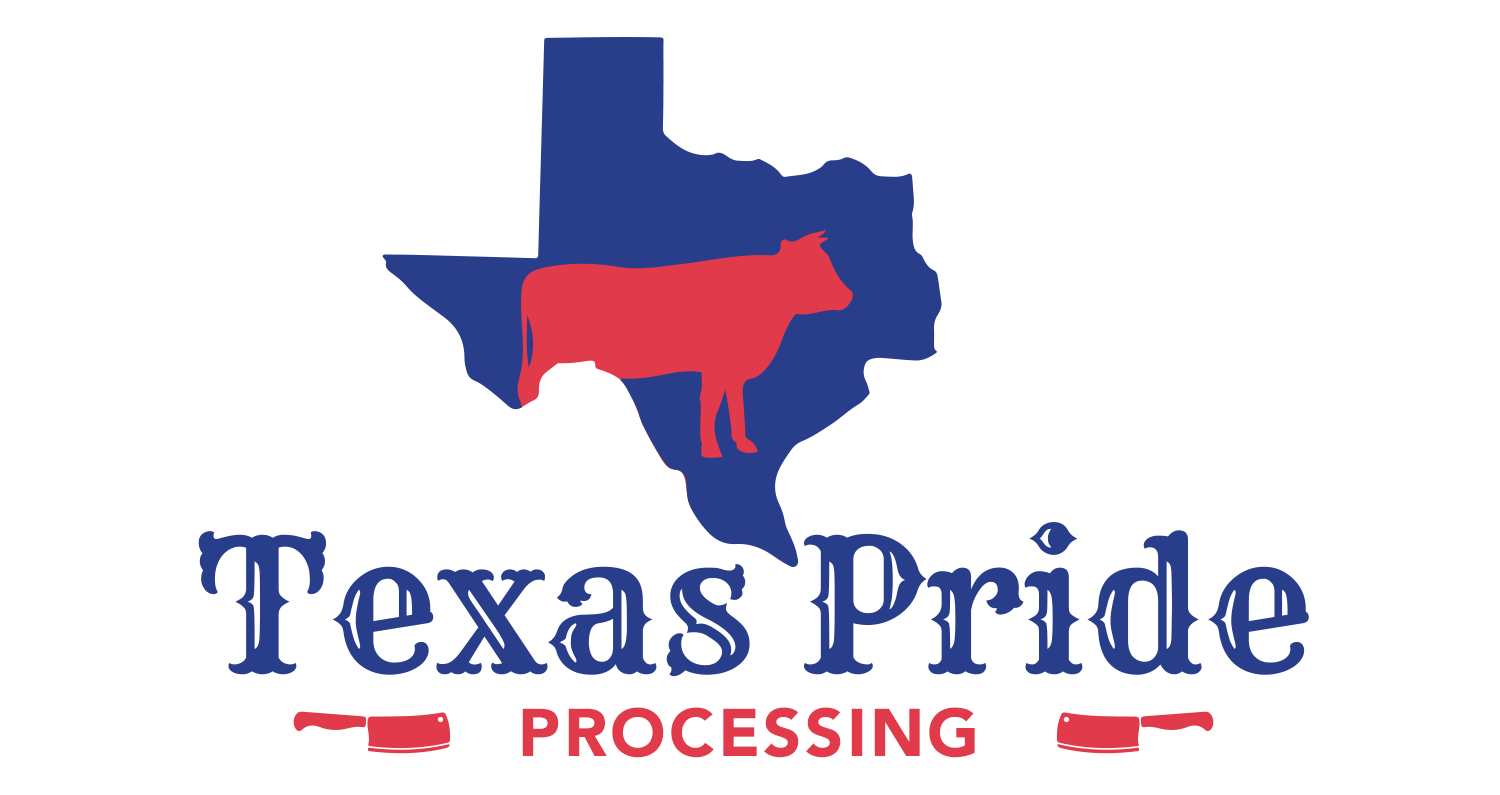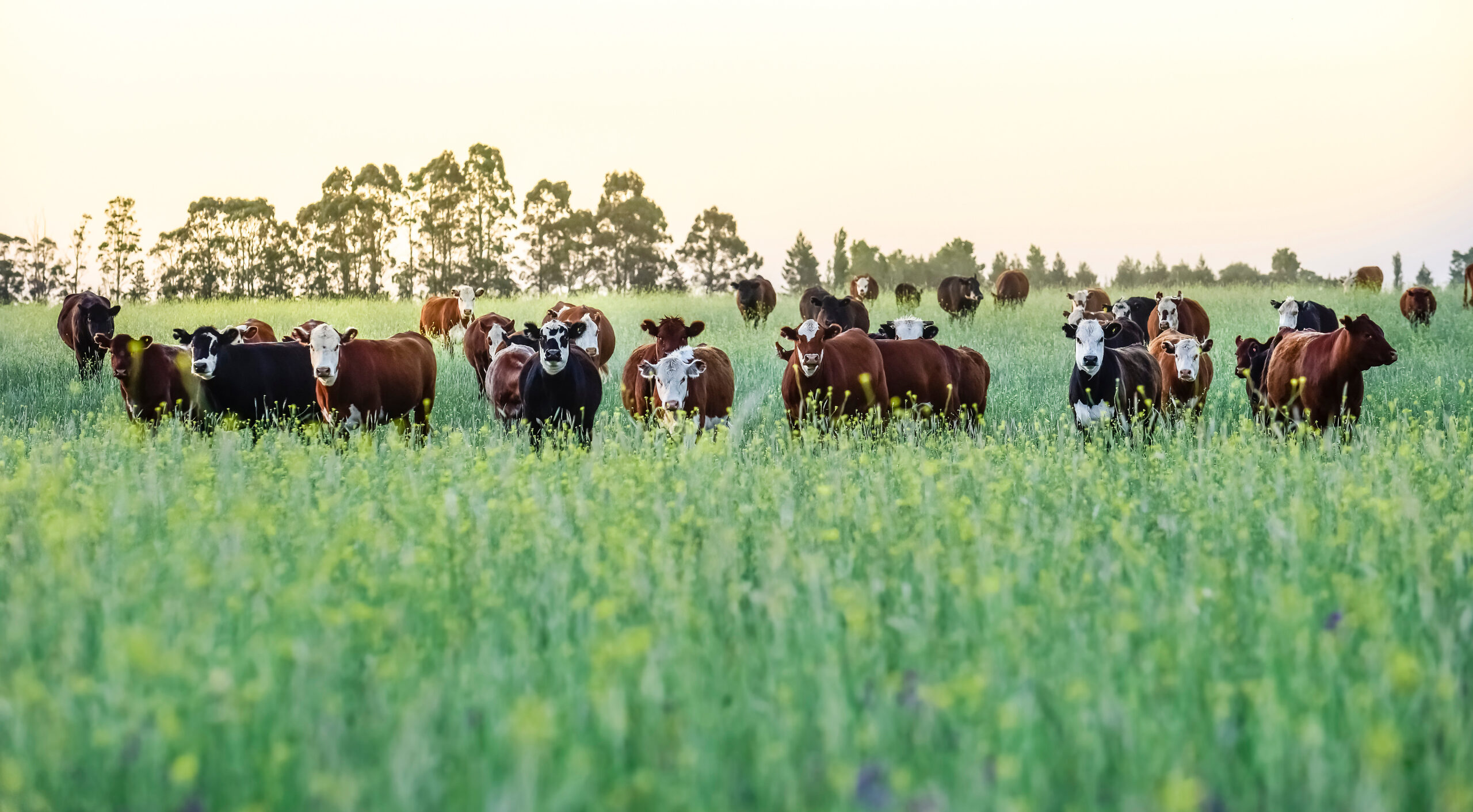Consumers know that in today’s fast-paced, connected world, each of us has seemingly endless choices at our fingertips – and one of those choices is where we purchase beef. Within the veil of manicured, organized grocery store aisles, the decision to pick up the least expensive package of beef seems simple enough. You’re a busy family, and all beef is the same, right? The average American family of four eats around 236 pounds of beef per year, so what seems like a small decision in the grocery store surely makes a big impact on your family’s health over the course of time. Does it matter, or not?
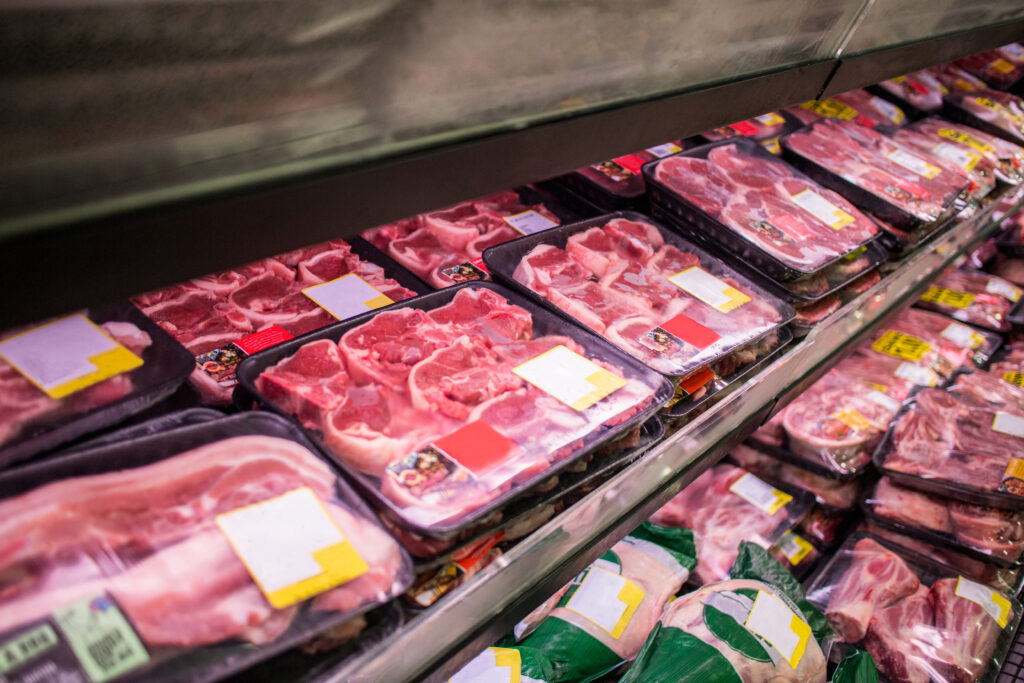
Consumers are becoming increasingly informed and discerning when it comes to purchasing products that are healthy and fresh for their families. They are also conscious of the effect that their choices have on the environment. In this article, we compare and contrast conventionally raised beef and beef raised by local farmers and ranchers, giving readers the opportunity to decide for themselves which beef producers to support.
The Beef Lifecycle
Let’s start by taking a journey from pasture to product in the life of factory-raised beef. To increase efficiency and realize lower costs, the USDA recognizes the challenges that come from increased industrialization of U.S. livestock farms. Large-scale organizations, to reduce costs and financial risks, have concentrated livestock in limited areas, creating concentrations of water and air pollution. Because of these concentrated areas where cattle are raised, tight quarters and large cattle populations require extensive antibiotic use, raising concerns about increased pathogen resistance and other risks to human health. It is in this dense factory-raised cattle population that your grocery store meat begins its journey. And while even large-scale cattle operations must meet specific safety guidelines, from the outset the system is designed to create the cheapest product that meets industry standards. Confined in barns, houses, or fenced lots, cattle of today are bred to be efficient for industrial farms, without an emphasis on creating the best products.
Beef Environmental Byproducts
In addition, large concentrations of farming byproducts (manure, methane, etc) impact the communities where these farms are located. Coordination of industrial-scale meat production extends beyond the time cattle spend confined on CAFOs and into meat processing as well. Today, the four largest beef-packing firms control 82% of the market. Over the last five decades, more and more small processors have been absorbed by these large conglomerates, half of which are Brazilian-owned companies. With this much control centered in the hands of a few, local ranchers are at the mercy of cattle prices dictated by powerful organizations who still profit in the end from rising meat prices. When competition is driven out the incentive to create the best product and win in the market is lost, leaving the cheapest and most conveniently produced products (no matter the local impact on ranchers and the environment) waiting for you at your local big-box grocer. Beef from grocery chains is wet-aged (because it’s cheaper) and puffed with gasses like nitrogen and CO2 to maintain a bright red exterior. Throughout the process of raising cattle, from farm to plate, lower costs and higher yields drive decision making. Is that the meat you want?
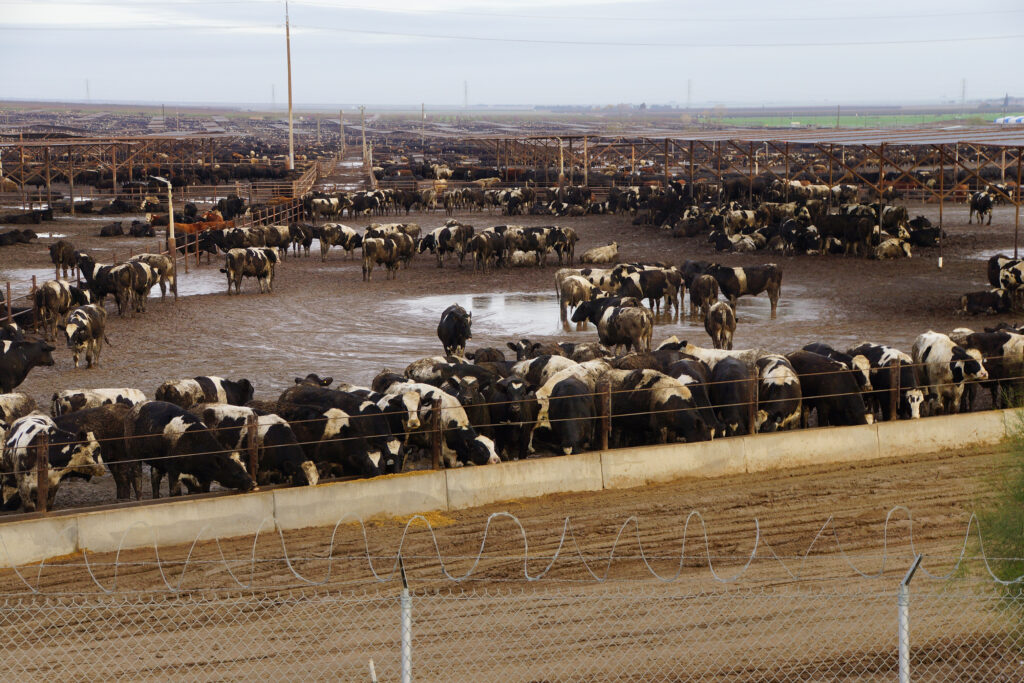
Local Ranchers, Local Business
Buzzwords such as “all-natural” or “pasture-raised” have seen a rise in popularity in recent years, but the lack of concrete meaning can make them less useful for shoppers. That is why local ranchers are focused on transparency rather than vagueness, offering an intimate look into their cattle-raising practices that their larger competitors simply cannot. Being small business owners within the local community, these ranchers have an unparalleled enthusiasm for their work and are eager to share their passion for beef cattle with anyone interested. In doing so, trust can be developed through visibility into the cattle-raising process. Cattle from the local community lead peaceful lives of grazing and basking in the sun, all thanks to the investment of nearby ranchers. They have bought land, cattle breeds, and all the equipment and feed needed to sustain a prosperous cattle ranch. These cattle are allowed to stay with their mothers until they can graze on their own. With these natural surroundings, these cows do not require large amounts of antibiotics. As opposed to those confined in feedlots, they do not have to endure intensive all-grain diets to bulk up. In addition, pasture-raised animals produce meat that is lower in fat and higher in omega 3 and omega 6 fatty acids, with a higher concentration of antioxidant vitamins (like vitamin E). Raising cattle locally not only gives the animals a higher quality of life, but it also produces a superior product for the rancher when the time comes for processing. Compared to the methods used by big-box meat packing companies, local meat processing practices differ significantly.
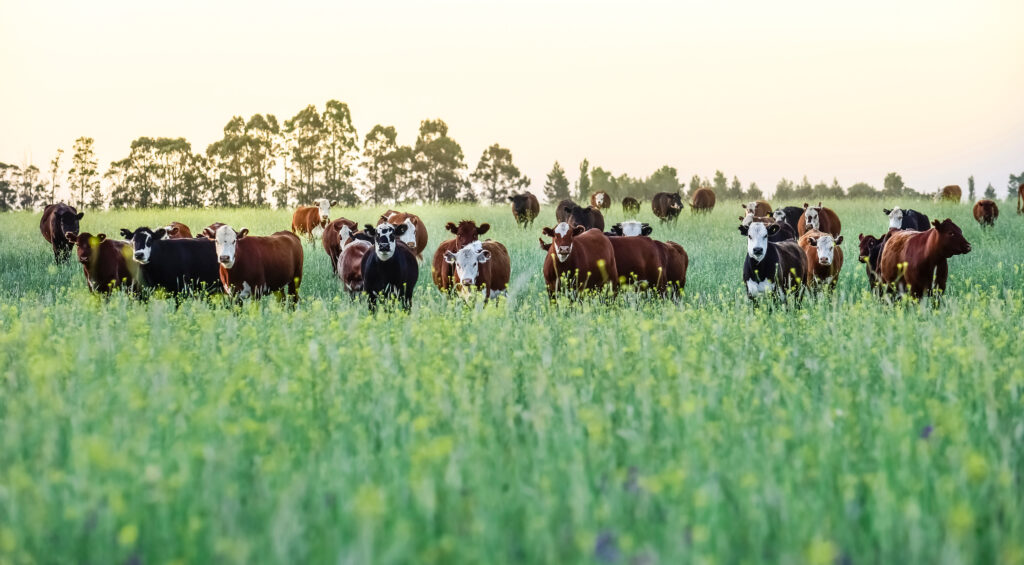
Locally Raised is Better
At Texas Pride Processing, local ranchers entrust us with their livestock, as we prioritize safe, humane, and hygienic practices when preparing their animal for your plate. We recognize that they have dedicated themselves to producing the finest livestock, and they deserve nothing less than the best meat processing services. Not just because it is convenient, but because of a commitment to excellence, local ranchers and meat processors put extra care into every step from drop-off to packaging, ensuring the highest quality and freshness of their meats. Our dry aging method adds an extra layer of deliciousness; beef hangs in the cleanest chillers and breathes, gradually losing water weight and intensifying its “beefy” flavor. Once vacuum-packaged, the meat is ready for storage and with no extra steps for the customer. We are proud to provide Texans with top-notch products from the local ranchers in our community.
Your money has the power to spark transformation. By opting for locally raised beef, you’ll contribute to the well-being of small ranchers and their households, while promoting a healthier lifestyle for yourself and Texas. So, why not make the right decision and choose the healthiest beef while backing the ranchers of Texas?
Learn more about Texas Pride Processing
Shop Beef Boxes
